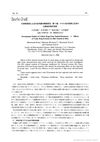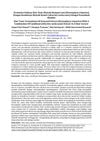Fo-ti
Research
20 / 957 resultsresearch Latin Cadurcum 'Female Genitals' and Hesychian Greek Xá8veog 'Hog': Is There Any Connection Between the Terms?
Polygonum multiflorum is used for health benefits but may cause liver issues.

research Topical Application of Polygonum Multiflorum Extract Induces Hair Growth of Resting Hair Follicles Through Upregulating Shh and β-Catenin Expression in C57BL/6 Mice
Polygonum multiflorum extract helps grow hair by activating certain hair growth signals in mice.

research Acute Hepatitis Due to Shen-Min
Shen-Min, a hair growth supplement, likely caused acute hepatitis in a woman, improving after she stopped taking it.

research Topically Used Herbal Products for the Treatment of Hair Loss: Preclinical and Clinical Studies
Herbal products might promote hair growth with fewer side effects, but more research is needed to confirm their safety and effectiveness.
research 5α-Reductase Inhibitory Components as Antiandrogens From Herbal Medicine
A plant extract was found to effectively block an enzyme related to male hormone-related diseases.

research Polygonum Multiflorum Extract Supports Hair Growth by Elongating Anagen Phase and Abrogating the Effect of Androgen in Cultured Human Dermal Papilla Cells
Polygonum multiflorum extract helps hair grow longer and fights the effects of hormones that cause hair loss.

research Development Studies of Cuticle Drugs from Natural Resources: Effects of Crude Drug Extracts on Hair Growth in Mice
Certain natural extracts can promote hair regrowth.

research The Clinical Study Using Oriental Medicine Extract on Male Pattern Hair Loss
An extract made from Polygoni multiflori Radix, Angelica gigantis Radix, and Lycii Fructus was found to increase hair density and prevent hair loss in most users when applied daily for 18 months.

research Overview of Hair Biology, Research Models, and Evaluation of Hair Regrowth Potential In Vitro and In Vivo
Natural remedies like grapefruit and rosemary may help hair regrowth.
research He Shou Wu (Polygonum Multiflorum)-Induced Hepatocellular Hepatitis
Taking He Shou Wu (Polygonum multiflorum) caused liver injury in a woman using it for hair loss.
research Study on Hair Growth and Scalp Improvement Using Natural Extracts
Natural extracts like peppermint and rosemary oils are effective for hair growth and scalp health.

research Ethnopharmacological Review of Medicinal Plants for the Treatment of Alopecia
Various medicinal plants like Polygonum multiflorum, Red ginseng extract, and Zizyphus jujuba can potentially treat hair loss, offering benefits like low cost and multiple ways of working. Other effective natural substances include Pygeum africanum, Seneroa, Urtica dioica, and more.

research Formulation of Hair Tonic Preparation from Seaweed Extract (Hormophysa Triquetra) with Candlenut (Aleurites Moluccana) Extract as a Hair Growth Agent
The hair tonic with the highest seaweed extract content showed the best hair growth results.

research Hair Growth: Focus on Herbal Therapeutic Agents
Some plants may help with hair growth and have fewer side effects than synthetic drugs, but more research is needed to confirm their effectiveness.

research The Wonder of Herbs to Treat Alopecia
Herbs like aloe vera and amla are effective and safe for treating hair loss.

research The New Paradigm for Androgenetic Alopecia and Plant-Based Folk Remedies: 5α-Reductase Inhibition, Reversal of Secondary Microinflammation, and Improving Insulin Resistance
Plant-based remedies may treat hair loss by reducing inflammation and improving insulin resistance.

research Complementary and Alternative Medicine for Vitiligo
Eat antioxidant-rich foods, reduce fast food, and explore various treatments for vitiligo.

research A Practitioner's Guide to Hair Loss Part 1: History, Biology, Genetics, Prevention, Conventional Treatments, and Herbals
The document concludes that hair loss is influenced by genetics and other factors, and while treatments like finasteride can help, they have limitations and side effects.

research Micronutrients for Hair and Nails: A Review of Their Impact on Health
Certain micronutrients may improve hair and nail health, but more research is needed to confirm their benefits.

research Treatment-Refractory Central Centrifugal Cicatricial Alopecia Responsive to a Novel Botanical Treatment
A new plant-based treatment was effective for hair regrowth in women with a specific type of hair loss that didn't respond to usual treatments.